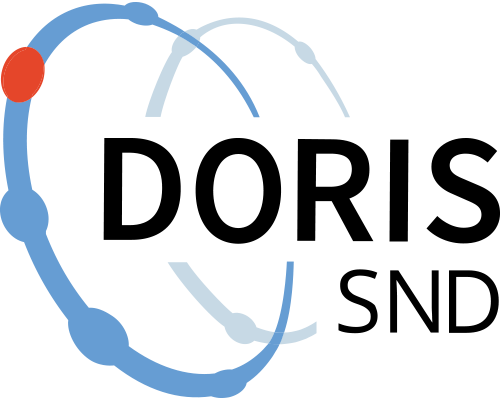STAGE - Study of Twin Adults: Genes and Environment
Citation and access
Citation and access
Data access level:
Creator/Principal investigator(s):
Research principal:
Data contains personal data:
Yes
Type of personal data:
Pseudonymised, health data, social security number, lifestyle, exposures, names, addresses, survey responses
Code key exists:
Yes
Sensitive personal data:
Yes
Citation:
Method and outcome
Method and outcome
Unit of analysis:
Population:
Monozygotic and dizygotic twins born in Sweden between 1958 and 1985, both same-sex and opposite-sex.
Time method:
Sampling procedure:
Description of sampling:
The sample included all twins born in Sweden between 1959 and 1985, based on birth records (born 1959-1972, BIRTH) and the Medical Birth Register (born 1973-1985). Twins who had declined to be contacted or participate in the Swedish Twin Registry, had protected identities, emigrated, or passed away were excluded. Both entire twin pairs and individual twins were asked to participate.
Time period(s) investigated:
Variables:
2181
Number of individuals/objects:
25485
Response rate/participation rate:
60%
Description of the response rate/participation rate:
Out of approximately 43,000 invited, 25,485 participated, resulting in a response rate of about 60 percent.
Samples/material - Collected from scientific collection/biobank
Samples/material - Collected from scientific collection/biobank
Name:
Type(s) of sample:
Data collection - Self-administered questionnaire
Data collection - Self-administered questionnaire
Mode of collection:
Self-administered questionnaire
Description of the mode of collection:
Web-based survey
Time period(s) for data collection:
2004-11 - 2006-05
Data collector:
- Karolinska Institutet
Opens a new window at ror.org.
ROROpens in a new tab
Source of the data:
- Registers/Records/Accounts: Medical/Clinical
- Registers/Records/Accounts
Instrument
Instrument
Name:
Alcohol
Description of the instrument:
Alcohol: dependence and abuse DSM-IV -Diagnostic and Statistical Manual of Mental Disorders Reference: DOI: 10.1007/978-3-642-28753-4_1094
Name:
CESD - Center for Epidemiological Studies Depression
Type:
Structured questionnaire
Description of the instrument:
The Center for Epidemiologic Studies Depression Scale Revised (CESD-R) assesses the frequency of depression-related symptoms experienced by respondents over the past week, including restless sleep, poor appetite, and feelings of loneliness. Reference: DOI: 10.1016/j.psychres.2010.08.018
Name:
EPQ - Eysenck Personality Questionnaire
Type:
Questionnaire
Description of the instrument:
The EPQ scale is used to assess the personality traits extroversion (outgoingness) and neuroticism (tendency to strong negative emotions such as anger, anxiety and depression). STAGE has 27 questions, an expansion from the original 18 questions. Reference for the inclusion of the 9 new questions in the scale is missing. See the references below instead. References: Floderus, B. (1974). Psycho-social factors in relation to coronary heart disease and associated risk factors. Nordisk Hygienisk Tidskrift, Suppl 6, 7–148. DOI: 10.1093/aje/153.8.757
Name:
Smoking
Description of the instrument:
Nicotine dependence - FTND (the Fagerström Test for Nicotine Dependence) References: DOI: 10.1111/j.1360-0443.1991.tb01879.x
Name:
TCI
Type:
Structured questionnaire
Description of the instrument:
The Temperament and Character Inventory (TCI) is a self-assessment questionnaire based on Cloninger's psychobiological model of personality. References: DOI: 10.1016/0959-4388(94)90083-3 DOI: 10.1001/archpsyc.1993.01820240059008 DOI:10.1027/1015-5759.24.1.14 DOI: 10.1016/s0010-440x(98)90070-0
Geographic coverage
Geographic coverage
Geographic location:
Geographic description:
Nationwide
Administrative information
Administrative information
Responsible department/unit:
Department of Medical Epidemiology and Biostatistics [C8]
Ethics Review 1:
Stockholm - 03-224
Det svenska tvillingregistret - en nationell resurs för genetisk-epidemiologiska studier: En utvidgning till kohorter födda 1959-1985
Ethics Review 2:
Stockholm - 2018/960-31/2
Saliva collection
Funding
Funding
Funding agency:
- The Swedish Research Council
Award number:
2017-00641, 2021-00180
Funding information:
STR as national infrastructure for research data
Funding agency:
- Karolinska Institutet
Funding information:
STR as core facility
Topic and keywords
Topic and keywords
CESSDA Topic Classification:
Standard för svensk indelning av forskningsämnen 2025:
Relations
Relations
Related resource:
The Swedish Twin Registry
